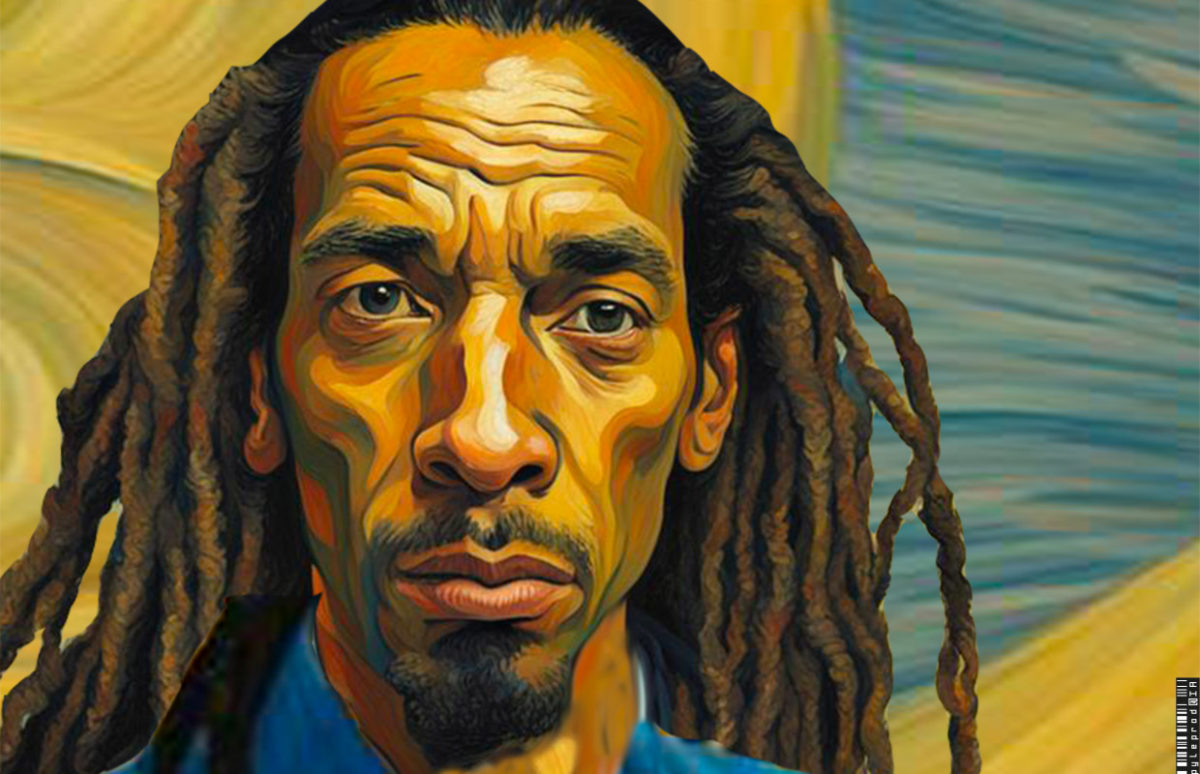After the sudden death of Benjamin Zephaniah, we decided to share the interview we had the great privilege of doing with one of Britain’s most popular poets in 2012. He had just been appointed Professor of Creative Writing at Brunel University. He shared some of his very eclectic thoughts with us.
Do you think of yourself as British or Jamaican or a mixture of the two?
I have to say that politically, I’m British. My first instinct, in terms of the people who are around me, the people who I care for, you know, a lot of my personality is shaped by being here. In Jamaica, they can tell you’re English cause you walk too fast. In Jamaica they always walk slow. And there’s a lot of Jamaicans who say, “Come on, you’ll never be Jamaican again.” But there’s something else, deep inside my DNA, that says I’m African. Some people are horrified, at the suggestion of that. My mother, thinks of Africa as a really backward place. I care about the people of Jamaica just as much as I care about the people of England. I care about the people in Iraq just as much as I care about the people in Jamaica. I really think of myself as an internationalist.
Do you think Britain is multi-cultural in any real sense?I wrote a poem for the Museum of London a couple of years ago that said that there were 200 languages spoken in London. I performed it a couple of years later and somebody from the Ministry approached me and said, “That’s out of date now, it’s 300 languages.” And that’s 300 different ways of cooking a potato, of saying, “I love you.”
I think that Britain is multi-cultural by definition. The problem is, when we think of multi-culturalism, we think of people from Asia and Africa coming here. But the Celts were one culture. The Saxons were another. The Normans were another. It’s just that there’s a lot of white multi-culturalism, a lot of European multi-culturalism. But you do not get reports saying, “All these people getting on together...” “Black people live right next to white people and nothing happened.”
It’s amazing when young people don’t even realize it’s happening. A friend of mine coaches a girl’s football team. One of his daughters is in the team. She came home one day and said to her father, “How do you spell Meena?” Because she had a friend called Meena and it was her birthday and she was writing her a birthday card. Now he knows that if she’s from Pakistan she will spell it M-I-N-A, but if she’s from India she will spell it M-E-E-N-A. So, he says to his daughter, “Where’s she from?” We were in the East End of London. And she said, “Oh, she’s from Plaistow.” And then her father said, “No, no, no, where did she live before Plaistow?” And she went, “Oh, yeah. Whitechapel.” And then he said, “No, no, people have roots, that go back further than the house they just lived in and the house they lived in before that. Somewhere where their family originated from.” And then the little girl went, “Oh, yeah, I understand. Bradford!” So, she had no sense that she might be coming from another country. In her school, there are people, with just different shades and different tones and this white girl is just one of them, actually.
I went out last night to a student gig. And I watched all these guys, and they were mainly black, and some of them were wearing hoodies. There was one gang sitting in front of me and they just looked really macho. And it was an open mike and one of them went on stage, and did this little Valentine’s poem for a girl that he couldn’t get. It was really cute. And I just thought, if you took a photo of that, they’d think it was some bad hip-hop gig.
You are now a professor of creative writing at Brunel University. Is it really possible to teach creative writing?
We all have a creative flame inside us, it just burns brighter in some people. I think when we teach creative writing, we’re not really teaching. We’re getting in and stoking that fire. There’s one boy in my class who’s really shy but he writes really good poetry. He just doesn’t know how to get up in front of people and express it. I’ve been working with him and yesterday I saw him perform, and he was absolutely brilliant and people loved it. That’s just given him confidence.
You can’t force someone to be creative if they don’t want to, but I’d still say there’s something deep in there. In fact, I think it’s been proved scientifically. I read a report that said we all have completely original thoughts. Every day, we all compose a sentence in a way that will never be composed again. Most people just let it go. What a poet does is just capture it. Someone walks down the street, looks at some grass and thinks, “What would happen if it was red?” and they go to work. I walk down the street, look at some grass and think, “What would happen if it was red?”, then I write a poem about it. All the other person has done is let it go. The poet can take very small ideas and write epic poems about them, or take very big ideas and write miniature poems about them. We’re just taking the stuff of every day.
Benjamin Zephaniah died on 7 December, 2023 at the age of 65, just eight weeks after being diagnosed with a brain tumour. For more about his life, see our obituary and visit his website.
Copyright(s) :
PYS
BBC
Tag(s) : "Barbados" "Benjamin Zephaniah" "British literature" "dub poetry" "Jamaica" "John Keats" "poetry" "reggae"






